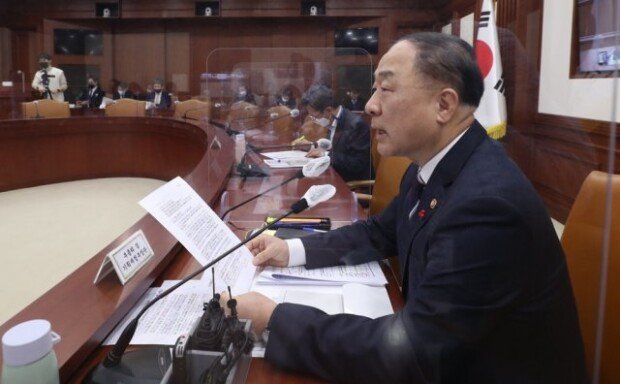South Korea applies to join CPTPP after China’s bid
South Korea applies to join CPTPP after China’s bid
Posted December. 14, 2021 08:12,
Updated December. 14, 2021 08:12

The South Korean government has officially announced to begin the application process to join the Comprehensive and Progressive Agreement for Trans-Pacific Partnership (CPTPP), a massive free trade deal taking up 15% of the world economy. While the deal is expected to serve as an opportunity to lower trade dependency on China and diversify Korea’s trade partnership, it is also feared to fuel steep opposition from local farmers and fisheries industry who are concerned about a fiercer competition against expanded imports.
“Considering the economic and strategic values derived from the expansion of trade and investments, we’ve decided to make an official bid to join the CPTPP,” said South Korean Finance Minister Hong Nam-ki at a meeting of Cabinet ministers on external economic affair on Monday. “The process will begin based on our discussions with various groups of stakeholders,” Hong added. The decision comes eight years after Seoul last considered making a bid for the membership of the TPP, the precursor to the CPTPP in 2013.
The CPTPP is a multilateral free trade deal launched in 2018 by 11 member states including Japan, Australia, and Mexico, after the U.S. exited the TPP trade deal. Currently, Japan is chairing the pact, with China and Taiwan having applied for membership in September this year.
The CPTPP boasts a high level of market openness, with a maximum 96% of tariff abolition rate. Seoul is expecting to lower its trade dependency on China and diversify export markets by joining the CPTPP which accounts for 15% of global trade.
“Joining the CPTPP will prove highly effective in helping us lower our dependency on China and expand our trade landscape,” said an official from the Korea Development Institute (KDI) in January this year. Another upside is to benefit from the stability of global supply chains amid the ongoing trade frictions between Washington and Beijing. The accession into the CPTPP can also be the chance to effectively sign a free trade deal with Mexica, a country that has yet to ink an FTA partnership with South Korea.
By contrast, local farmers and fishermen are concerned about expanded imports of agricultural produces. In fact, the CPTPP boasts plenty of agricultural powerhouses such as Australia, Chile, and Canada. The Korea Agriculture Association Consultative Body issued a statement on Monday, saying that an increase in the price-competitive imported agricultural products can lead to a collapse of the country’s foundation of agricultural production in the longer term.
Given additional procedures of public hearings, parliamentary reports, and discussions with member states, it will take another three to four years to complete the membership process. Some point out Seoul’s belated bid to enter the process after eight years has only sapped its negotiating power. A final accession requires a unanimous vote from all member states including Japan.
“Seoul’s negotiating power is relatively weaker because China has already begun the application process,” said Prof. Choi Won-mok of Ewha Womans University. “And Japan can capitalize on its chairmanship by playing the card of the court rulings on Korean victims of forced labor in rendering the final decision on Seoul’s membership.
Teuk-Gyo Koo kootg@donga.com







